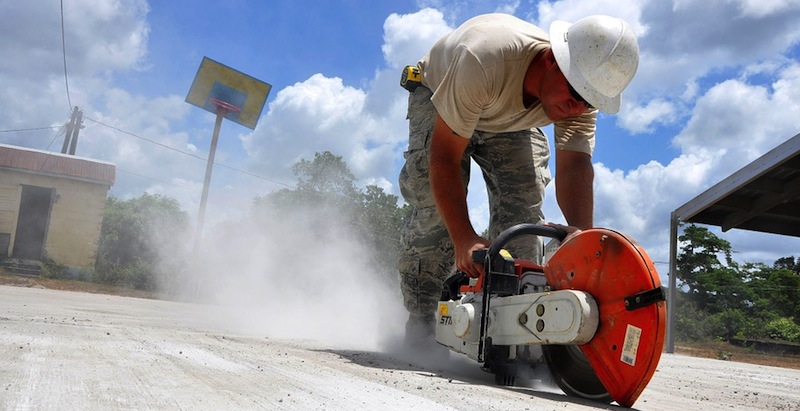The Occupational Safety and Health Administration has announced a final rule to improve protections for workers exposed to respirable silica dust.
OSHA says the rule will help prevent lung cancer, silicosis, chronic obstructive pulmonary disease, and kidney disease in workers by limiting their exposure to respirable crystalline silica. The final rule is written as two standards, one for construction and one for general industry and maritime.
Construction companies have until June 23, 2017 to comply with most requirements. New requirements include:
- Reducing the permissible exposure limit for crystalline silica to 50 micrograms per cubic meter of air, averaged over an eight-hour shift.
- Mandating employers to use engineering controls (such as water or ventilation) and provide respiratory protection when controls are not able to limit exposures to the permissible level
- Limit access to high exposure areas
- Train workers
- Provide medical exams to highly exposed workers.
OSHA says the new regulations, which replace ones established in 1971, provide greater certainty and ease of compliance to construction employers – including many small employers – by including a table of specified controls they can follow to be in compliance without having to monitor exposures. More information is available here.
Related Stories
| Jan 30, 2012
ZigBee and ISO 50001: Two new standards to make buildings greener
These developments demonstrate the dynamic nature of the market and the continued need for development of program standards of many different types that help builders and owners translate high performance and sustainable buildings goals into practical measures on the ground.
| Jan 30, 2012
New firm-fixed-price rules on federal contracts impact construction industry
Contractors will need to be on the lookout for policies such as the Contractor Accountability for Quality clause.
| Jan 30, 2012
Roofer’s fatal plunge demonstrates need for fall-prevention regulations
“The biggest problem is getting our workers to use the equipment,” says Michael J. Florio, executive director of the organization.
| Jan 26, 2012
Tampa moves to streamlined online permitting system
The system will replace an inefficient patchwork of old software and is designed to provide businesses, homeowners, and contractors with online access to permitting and licensing information.
| Jan 26, 2012
EPA to collect more data, seek comments before finalizing mud rule
The EPA says it will seek more data and is accepting comments until March 5.
| Jan 26, 2012
Industry challenges Connecticut's suit over defective construction work
The dispute arose over multimillion-dollar leaks at the University of Connecticut's law library.
| Jan 26, 2012
Earthquake 'fuse' could save buildings during temblors
The idea is to use an earthquake "fuse" that can prevent the tiny fractures and warps that make structures unsafe after a quake and very expensive to repair.
| Jan 26, 2012
HPD open materials standard for green building materials gains momentum
GreenWizard, provider of a cloud-based product management and project collaboration software, is the latest industry participant to sign on
| Jan 26, 2012
Siemens launches smoke detection knowledge center
New knowledge center web site demonstrates efficacy of smoke detection.
| Jan 18, 2012
Chile's seismic code upgrades credited with saving lives in 2010 quake
Since 1960, when Chile suffered a 9.5 magnitude quake, the largest ever recorded; the country has steadily improved building codes to protect lives and property.

















